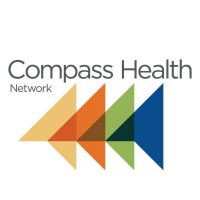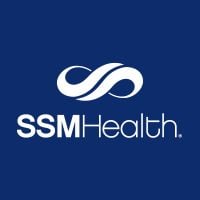Transitional Residential Facility
Drug Rehab Center in Jefferson City, Missouri
Transitional Residential Facility in Jefferson City, MO is a specialized addiction treatment facility with a wide range of services, including dual diagnosis, inpatient, outpatient, and residential levels of care, and accepting of private health insurance.
About Transitional Residential Facility in Missouri
Transitional Residential Facility in Jefferson City, Missouri is a comprehensive treatment facility that provides support and care for individuals looking to recover from addiction and substance abuse. With a special focus on Dual Diagnosis, Eating Disorder, and Mental Health treatment, this facility offers a range of services to address these specific challenges. Transitional Residential Facility offers levels of care including Dual-Diagnosis, Inpatient, Outpatient, and Residential programs, ensuring that individuals can access the type of treatment that meets their needs. The facility also accepts Private Health Insurance, making it a viable option for individuals seeking treatment.
This treatment center prides itself on its commitment to providing individualized care and support. At Transitional Residential Facility, clients can expect to receive personalized treatment plans tailored to their unique needs and circumstances. The facility employs various evidence-based treatment methods, such as individual therapy, group therapy, and family therapy, to address addiction and substance abuse. Additionally, the facility offers specialized services for individuals struggling with eating disorders and mental health issues. These services may include nutrition counseling, psychiatric evaluations, and medication management. With a focus on Dual Diagnosis, Eating Disorder, and Mental Health treatment, Transitional Residential Facility provides comprehensive care for individuals seeking to overcome addiction and regain their well-being.
Genders
Ages
Modality
Additional
Conditions and Issues Treated
Dual Diagnosis treatment centers like Transitional Residential Facility provide this treatment tailored to the patient’s specific needs, and they also have a specialized focus on addiction treatment. Drug and alcohol addiction often coexists with another mental illness, such as depression or schizophrenia. In other words, drug addiction is only a symptom of a deeper problem.
When addiction enters into the picture, it can often lead to dangerous consequences in the addict’s life. For example, when addiction is paired with major depression, it can lead to suicidal thoughts or actions. When someone is addicted to drugs or alcohol, they often experience a failure to control their impulses and difficulty decision-making.
Dual diagnosis for drug addicts can be very effective when treating drug addiction in Jefferson City, MO.
Levels of Care Offered
This center offers a variety of custom treatment tailored to individual recovery. Currently available are Dual-Diagnosis, Inpatient, Outpatient, Residential, with additional therapies available as listed below.
The inpatient rehab at Transitional Residential Facility promises an intense and effective treatment. Inpatient rehabs are particularly recommended for those with a severe addiction to drugs. Detoxing at a rehab center ensures that the patient receives 24-hour medical supervision to ensure the best possible chance of recovery. Medical staff is readily available to intervene in case of withdrawal symptoms or other complications. This is not the case with outpatient treatment, where patients may be discharged after the detoxification process is complete.
Inpatient facilities provide residential and holistic treatment, with access to experienced medical professionals and rehab specialists. This ensures the best possible recovery and is recommended for patients with severe addiction seeking drug treatment.
Outpatient treatment programs are less intensive than an inpatient program. Participants live at home while working or going to school. Benefits include being able to continue relationships with family, friends, and work/studies. Treatment includes educating patient on addiction to drugs, medication, and counseling. Benefits include being able to continue relationships with family, friends, and work/studies. Treatment includes educating patient on addiction to drugs, medication, and counseling. Counseling sessions are for either individual or group.
Residential treatment programs are those that offer housing and meals in addition to substance abuse treatment. Rehab facilities that offer residential treatment allow patients to focus solely on recovery, in an environment totally separate from their lives. Some rehab centers specialize in short-term residential treatment (a few days to a week or two), while others solely provide treatment on a long-term basis (several weeks to months). Some offer both, and tailor treatment to the patient’s individual requirements.
Therapies & Programs
Individualized Treatment is essential because it gives addicts the ability to participate in a program that meets their unique needs. An addict should work with professionals who understand what they’re going through, especially if the addict is actively using.
Trying to find a treatment program that meets your needs can be challenging. It’s even more complicated if you don’t know what kind of treatment you need. Being able to have professionals who are experienced with treating your situation is key to getting sober. Finding the right treatment program for an addict is difficult, but it’s even harder without communicating with those who have experience treating your specific situation.
Couples therapy is beneficial for couples in which at least one partner has a substance use disorder. This type of therapy can help partners improve communication skills, which is an important factor in a healthy relationship. It can also help partners better understand one another so they have a greater understanding of how the other partner may be feeling.
Benefits of couples therapy include:
- Improvement in communication skills
- Increased understanding of the dynamics within a relationship
- Increased sense of support and trust in the relationship
- Better teamwork between partners/increased willingness to listen and work together
- Enhanced tolerance of each other’s shortcomings
- Improved ability to have open, honest communication with each other
Family dysfunction can often be the underlying cause of substance abuse. To get sober, you need to find a different way to cope with the pain in your life. Family therapy can help you and your family deal with old issues that may trigger substance abuse. It will help everyone understand why each member of the family feels and acts the way they do. It can give everyone new tools to manage their emotions so that they don’t want to drink or do drugs.
A person looking for drug recovery should know that group therapy is an essential tool. Group therapy provides accountability and friendship to people with addiction. It is recommended as a lifetime treatment habit. Group therapy occurs in a group setting as opposed to a one-on-one setting. It benefits patients by providing a feeling of support and letting them know they are not alone. Patients at Transitional Residential Facility also learn to build trust and understanding and gain perspective through discussions.
If you are looking for a drug addiction treatment program that also provides trauma therapy, then Transitional Residential Facility in Jefferson City, MO is a great option. The staff at this facility specialize in helping people process and understand the past traumas that have led them to addiction. This approach can help individuals move forward with their recovery and take a better hold of their sober future.
The benefits of trauma therapy at Transitional Residential Facility in Jefferson City, MO are as follows:
- People will become less likely to engage in self destructive behaviors.
- Their emotional and mental health will significantly improve.
- They will be more confident in their abilities to live an addiction-free life.
- People will be able to connect with other people on a deeper level.
- Their problems with intimacy and trust will improve.
Dialectical behavior therapy is a type of cognitive-behavioral therapy that focuses on eliminating specific negative thoughts that can potentially lead to an individual inflicting self-harm. It helps treat patients exhibiting uncontrollable emotions, intense mood swings, and borderline personality disorders.
The term “dialectic” means the integration of opposites. In the substance abuse context, dialectical behavior therapy refers to accepting the patient’s addiction and changing their thoughts and behavior. It improves life skills such as controlling intense emotions without reacting impulsively, resolving interpersonal conflicts effectively, and promoting awareness about self and others.
Cognitive behavioral therapy (CBT) is a type of psychotherapeutic treatment that is focused on changing negative ways of thinking that contribute to addictive behavior.
Cognitive behavioral therapy is beneficial for:
- People who are seeking to overcome addictive behavior
- Those who struggle with addictive behavior and mental illness
- People who have a genetic history of addiction in their family
- Those who don’t want to depend on medications
- Those who need a more practical treatment approach
Thinking about nutrition is an odd thing when you’re strung out. You are probably so low physically that all you want to do is sleep, eat comfort food and get high again. It’s hard to imagine having enough energy to care about what kind of food you are eating but think about it. Your body has gone through some severe physical stress, so it is vital to give it the building blocks it needs to recover. It’s equally important to remember that malnutrition can affect your mood and energy level, which affects your desire to get sober.
If you’re eating right, you’ll have more energy for productive activities, such as going to meetings or being with other sober people in Jefferson City, Missouri. You’ll have more strength to fight cravings, and you won’t be so low that they are overwhelming. You will think clearly enough to make sober decisions. Finally, good nutrition helps keep your body strong against the familiar ravages of drug use–tuberculosis, hepatitis, abscesses, infections, etc.—as well as the physical symptoms of withdrawal.Nicotine replacement therapy can help addicts reduce or eliminate their cravings for nicotine. By replacing the harmful substances in tobacco with less potent chemicals, most smokers can gradually wean themselves off cigarettes without experiencing intense cravings.
During these sessions, a therapist will work with the addict to gradually reduce their dependence on nicotine by controlling how much they smoke and providing appropriate breaks between cigarettes. Using this type of therapy in combination with other strategies can help smokers learn how to quit smoking for good and avoid relapse.
Patient Experience
Experiential Therapy at Transitional Residential Facility
Experiential therapy is a type of therapy that has been found to be effective in the treatment of substance abuse. It is a “hands-on” approach, which can involve anything from acting to rock climbing. The individual must trust the therapist for this therapy to work. This therapy helps individuals revisit and heal from past traumas and has been used in various behavioral and eating disorders.
Payment Options Accepted
For specific insurance or payment methods please contact us.
Is your insurance accepted?
Ask an expert, call (888) 674-0062
Additional Details
Specifics, location, and helpful extra information.
Jefferson City, Missouri 65109 Phone Number(573) 634-8142 Meta DetailsUpdated November 25, 2023
Staff Verified
Transitional Residential Facility Patient Reviews
There are no reviews yet. Be the first one to write one.
Jefferson City, Missouri Addiction Information
Opioid-related overdoses in Missouri have been increasing steadily for the past three decades. In 2018, more than 1,130 people in Missouri died from opioid abuse. Methamphetamines and marijuana abuse have surpassed opioid abuse in Missouri. Missouri is the number 1 methamphetamine manufacturer in the country with more than 27 meth labs per 100,000 people.
The drug addiction problem in Jefferson City, Missouri, is relatively bad. In 2012, about 9.4% of residents reported using illicit drugs. Additionally, approximately 15.5% of residents reported binge drinking alcohol. Over 1,000 admissions to drug and alcohol treatment facilities in the city in 2016. Many resources are available in Jefferson City, Missouri, to help you stay sober and live a productive life.
Treatment in Nearby Cities
- Carthage, MO (150.0 mi.)
- Milan, MO (121.0 mi.)
- O Fallon, MO (84.0 mi.)
- Cape Girardeau, MO (172.8 mi.)
- Camdenton, MO (49.2 mi.)
Centers near Transitional Residential Facility
The facility name, logo and brand are the property and registered trademarks of Transitional Residential Facility, and are being used for identification and informational purposes only. Use of these names, logos and brands shall not imply endorsement. RehabNow.org is not affiliated with or sponsored by Transitional Residential Facility.





